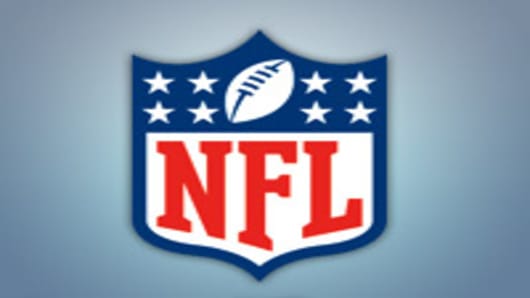NFL players are blitzing Capitol Hill, meeting with about a dozen members of Congress, including House Speaker Nancy Pelosi, to build political support in a possible labor showdown with team owners.
About 20 current and former players were sitting down with lawmakers Wednesday, fanning out in three teams, following a negotiating session a day earlier between players and owners on a new collective bargaining agreement.
Last year the owners voted to opt out of the current agreement in 2011, raising the possibility of a work stoppage in two years. Owners argue that the current agreement is too favorable for players, who get about 60 percent of revenues.
The players have countered with a union-commissioned study that showed the average value of the teams has grown from $288 million to $1.04 billion over 10 years, an increase of about 14 percent a year.
The players, who fear a lockout, will remind lawmakers about the "gifts" Congress bestows on the league, such as an antitrust exemption for broadcasting contracts, the union's new executive director, DeMaurice Smith, said in an interview with The Associated Press.
It may be hard to conjure up much sympathy for football players making seven-figure salaries. But Smith noted that thousands of people are employed as stadium workers.
"I'm not sure in an economic downturn whether a business that generated $8 billion in revenue last year should be contemplating" throwing those people out of work during a lockout, he said, adding that lawmakers should think about the consequences to their home cities.
Besides Pelosi, D-Calif., other lawmakers on the players' agenda included Rep. Chris Van Hollen, D-Md., assistant to the speaker; Texas Rep. Joe Barton, the top Republican on the House Energy and Commerce Committee; Sen. Herb Kohl, D-Wis., who is the chairman of the Senate Judiciary Committee's antitrust subcommittee; and Sen. Arlen Specter, D-Pa., who has taken on the NFL on various issues.


